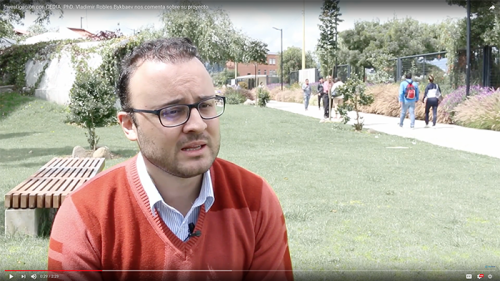
Headquarters Research Coordinator of the Salesian Polytechnic University.
I am currently developing research processes focused on the educational inclusion of children, youth and adults with and without disabilities. For this, we have managed to incorporate both ICTs and tools based on Artificial Intelligence to try to generate assistive technologies that allow the inclusion processes to be improved. To date we have managed to design and develop around 50 prototypes.
It was an interesting experience. I consider these types of initiatives carried out by CEDIA to be of great interest, since they allow researchers to develop new skills not only in the technical field, but also in the planning and preparation of projects that have a high component of innovation and collaboration with Multidisciplinary teams.
The proposal that we present jointly with fellow researchers from the UDA, UCACUE, UPS and UNAE seeks to develop an intelligent ecosystem that uses expert systems, electronic devices, simulators and ICTs to provide support in the provision and training of personnel with disabilities in companies .
Fundamentally, it is our desire to contribute to the educational and labor integration of people with disabilities, it is our main goal. On the other hand, we are convinced that with all the support provided by CEDIA through its human team and Network, we will be able to develop a concise contribution to our society.
I believe that in recent years there has been an improvement that is not only reflected in the strong increase in scientific publications in conferences and magazines (national and international), but on the contrary, it can be seen that research groups have been generated focused on carry out processes that have a long-term IDi vision.
As a Research Group on Artificial Intelligence and Assistive Technologies and UNESCO Chair Support Technologies for Educational Inclusion, we hope that in 5 years we will have managed to consolidate several technological support tools for people with disabilities and special needs. In the same way, we hope to have built a solid network of work with sister institutions with a vision of solidarity and a social focus.
Yes, we have been fortunate to have participated in the Telemedicine/Telehealth Working Group and in the X CEPRA call.
I believe that organizations like CEDIA should continue with this work that today is vital for the development of our country. The only way in which we can be competitive at an international level is by developing solid research processes that allow us to generate advances in different areas of both production and scientific innovation.
I would like to take advantage of this space to send a message of encouragement so that they continue to develop processes that improve the quality of life of those who need it most and, at the same time, continue to contribute to the research progress of our country.

